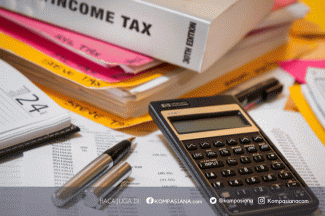In recent decades, the world has been facing unprecedented challenges that threaten economic stability, environmental sustainability, and social well-being. Among the most pressing of these issues is climate change, which has emerged as a defining concern of our time. According to Cevik and Jalles (2023), the average surface temperature has already risen by 1.1C compared with the preindustrial average (1850--1900), and projections suggest it could increase by as much as 4C by the next century. This rise is not merely a scientific statistic, it carries far-reaching consequences for global growth, financial stability, and the welfare of societies around the world.
Compounding the climate crisis are widening income inequalities and persistent poverty, particularly following major global disruptions such as the Global Financial Crisis (GFC) and the COVID-19 pandemic. While many countries had been making progress in reducing poverty, the pandemic reversed some of these gains, with poverty rates estimated to be two percentage points higher than they would have been in the absence of COVID-19. In addition, geopolitical tensions continue to threaten lives and livelihoods, further destabilizing already fragile economies.
Another layer of complexity arises from governance and institutional weaknesses, particularly in developing nations. Poor governance and a lack of reform often perpetuate inefficiency, corruption, and inequality. In today's era of heightened uncertainty, characterized by climate risks, social tensions, and financial volatility, strong institutions and ethical governance have become more important than ever.
A Global Response through Islamic Finance
In this global context, there has been growing enthusiasm for the integration of Sustainable Development Goals (SDGs) within the framework of Islamic finance (IF). Islamic finance, guided by the ethical principles of the Shariah, naturally aligns with many of the SDGs, including those related to poverty alleviation, equitable growth, environmental protection, and social justice. The "convergence" between the objectives of sustainable development and the Maqasid al-Shariah (objectives of Islamic law) has inspired optimism among scholars and practitioners alike.
Islamic finance is thus seen as more than an alternative financial system, it is a value, based financial model that emphasizes both profitability and social responsibility. The key question then becomes: How can Islamic finance play a meaningful role in advancing sustainable development?
The Maqasid al-Shariah as a Foundation
To answer this, one must look at the Maqasid al-Shariah, which outlines five fundamental objectives of Islamic law:
Protection of al-Din (Religion) -- Ensuring adherence to faith and observance of Islamic teachings, distinguishing between what is permissible and prohibited.
Protection of al-Nafs (Life) -- Safeguarding human life through prohibitions against violence, harm, and injustice.
Protection of al-Nasl (Lineage) -- Promoting family integrity through the validation of marriage and prohibition of adultery.
